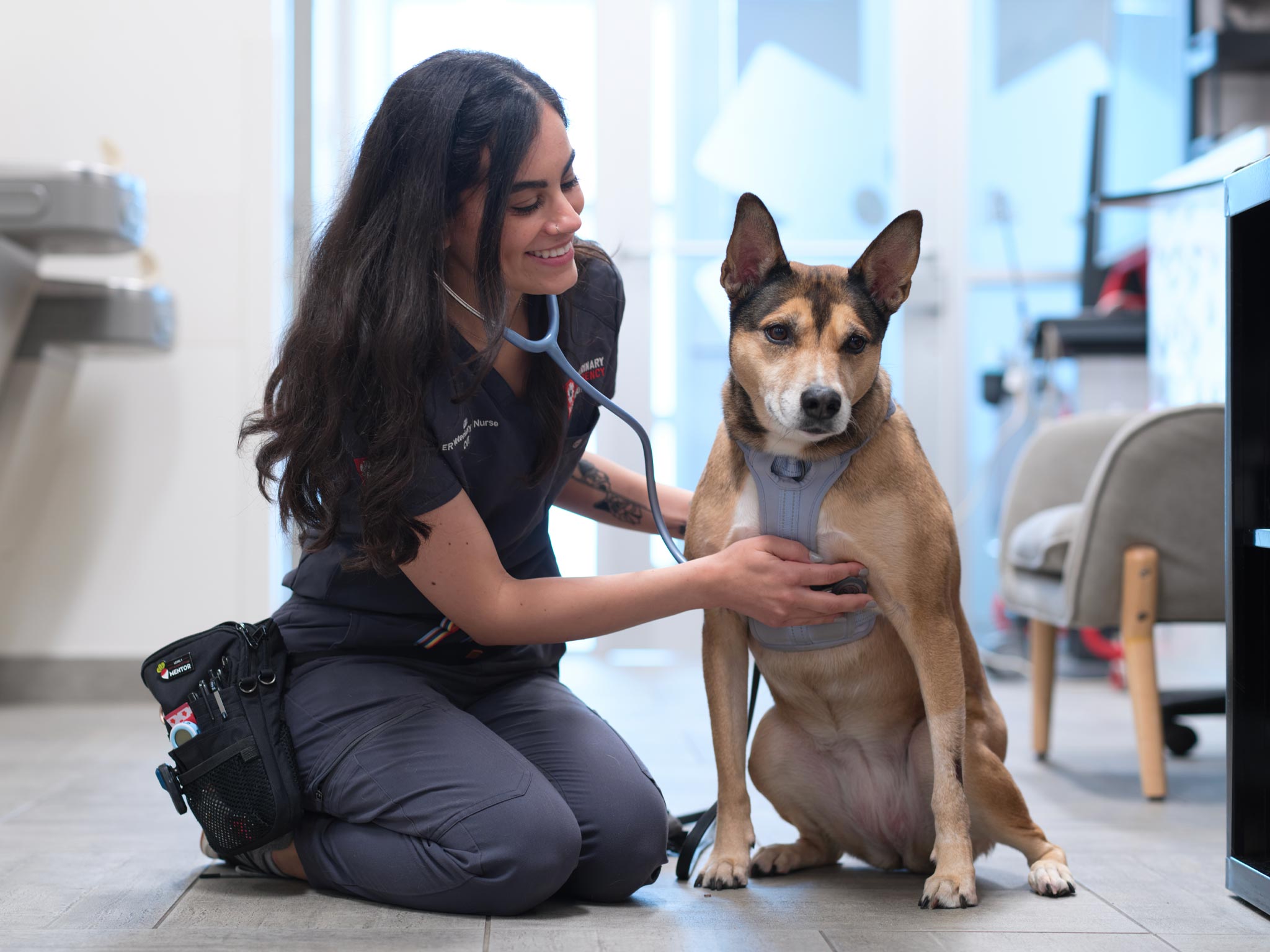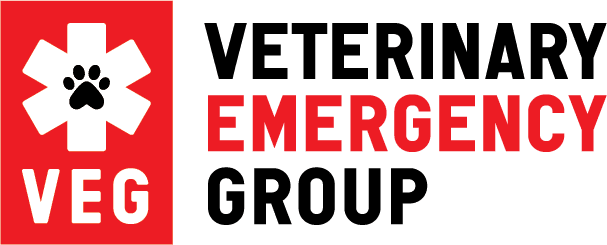
Why Does My Dog Keep Panting?
Dr. Ruth Hagan
Call & Speak with a doctor Open 24/7, Even Holidays!
Walk in today for:
Emergencies
Point-of-Care Ultrasound
Urgent Care
X-Rays
Diagnostics + Testing
End-of-Life Care
Surgery
Treatment + Hospitalization
Just walk through the door—and voila—you are treated to the sight of your happily-panting, tail-wagging BFF! In short, an excitedly panting pooch is a common (and adorable) sight for pet parents. So when, if at all, should you be concerned about your panting pup? Take a breather with us to learn more about how panting relates to a dog’s health.
HOT DOG? NORMAL PANTING VS. EXCESSIVE PANTING
After some fun in the sun, it’s normal for dogs to pant while trying to cool off and catch their breath. On the other hand, if their panting is rapid, loud, and excessive or accompanied by other symptoms (i.e., anxiety or lethargy), there could be an underlying health issue. It’s always a good idea to make a pit stop at Veterinary Emergency Group (VEG) to figure out what’s up with your pup.
COMMON CAUSES FOR DOG PANTING
Sometimes dog panting is completely normal and it’s just your dog cooling down. Other times, it’s cause for concern. Check out some of the most common causes for your dog’s panting.
Sun’s out, tongue’s out! Dogs and hot-weather exercise
Just like us, exercising in hot temperatures is a sure-fire way to break a sweat. However, dogs don’t perspire like us, instead they pant to regulate body temperature–and that’s totally normal. But make sure you provide your dog with the following to help cool down that canine:
- A shady spot
- Breaks in playtime
- Fresh water
Worried about a heatstroke or dehydration? Contact VEG with your concerns.
The Usual Suspects: Stress, Anxiety, and Fear
Dogs are known to huff and puff when they’re stressed, anxious, or afraid. Oftentimes, this type of panting is accompanied with other signs of distress, such as:
- Hidin
- Pacing
- Whining
Changes in the environment, loud noises, or new situations can trigger this response. If you notice your panting puppy is panicked for some reason, providing a calm and safe space can help. If anxiety is an ongoing issue for your dog, consult with your primary care veterinarian for guidance on managing your dog’s stress.
H-h-h-ealth-related causes
Sometimes, panting may be a symptom of a health issue. Conditions like heart disease, respiratory problems, or pain can be at the root of why your dog won’t stop panting.
If you notice these following signs, call VEG or come right in and you’ll see a veterinarian immediately:
- Constant or labored panting
- Coughing
- Lethargy
- Loss of appetite
Our highly skilled vets at VEG can help figure out what the underlying issue may be and provide appropriate care.
Aging can be ruff! Age-related panting
With old age, your dog’s panting may become more frequent. This could be due to a variety of age-related health issues (i.e., arthritis or cognitive dysfunction) or it may simply be because senior dogs have a harder time regulating their body temperature. It’s important to find out what may be causing your dog’s heavy panting. Be sure to take your doggo for regular check-ups at the vet. If your dog is experiencing an emergency, VEG is here with specialized care. Our vet team can treat senior dogs quickly and provide you with a care plan if need be to make sure your puppy-at-heart stays comfortable and healthy in his or her golden years.
Little nose, big trouble: breed-specific considerations
There are certain dog breeds that are more prone to panting. This is especially true for those with short noses like Bulldogs and Pugs. These pups have brachycephalic airways which makes it harder for them to breathe and cool down. If you’re concerned about your short-nosed dog’s breathing, our team at VEG is experienced in caring for brachycephalic breeds.
TIPS FOR KEEPING YOUR DOG COOL AND COMFY
- Adequate hydration: Always have fresh water available
- Keep ’em cool: Use fans, air conditioning, and shade to beat the heat
- Go easy on exercise: Avoid intense activities during the hottest parts of the day
- Watch for signs: Be aware of changes in your dog’s panting or any signs of struggle
WHEN IN DOUBT, VEG CAN HELP YOU FIGURE IT OUT!
VEG has locations all across the U.S. staffed with professionals trained to handle emergencies. We’re open 24 hours a day, so come in anytime if your dog seems to be panting too hard or acting stressed. Call first and we’ll meet you at the door. You’ll stay with your dog the entire time in our open concept ER, while we work to get your pal back to health and his or her tail-wagging self!

